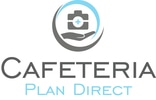|
Source: The New York Times
Having wiped out the requirement for people to have health insurance, Republicans in Congress are taking aim at a new target: the mandate in the Affordable Care Act that employers offer coverage to employees. And many employers are cheering the effort. While large companies have long offered health benefits, many have chafed at the detailed requirements under the health law, including its reporting rules, which they see as onerous and expensive. Now that relief has been extended to individuals, some companies believe they should be next in line. The individual mandate and the employer mandate are “inextricably entwined,” said James A. Klein, the president of the American Benefits Council, an influential lobby for large companies like Dow Chemical, Microsoft and BP, the oil and gas producer. “It is inequitable to leave the employer mandate in place when its purpose — to support the individual mandate — no longer exists,” Mr. Klein said. “We are urging Congress to repeal the employer mandate.” Opposition to the employer mandate could increase as more employers are fined for not offering coverage or for not meeting federal standards for adequate, affordable coverage. Since October, the Internal Revenue Service has notified thousands of businesses that they owe money because they failed to offer coverage in 2015, when the mandate took effect. Representatives Devin Nunes of California and Mike Kelly of Pennsylvania, both Republicans, recently introduced a bill, supported by party leaders, to suspend the mandate, canceling any penalties that would be imposed for any year from 2015 to 2018. “The employer mandate is a job-killer, a wage-killer and a business-killer,” Mr. Kelly said. But Tom Leibfried, a health care lobbyist at the A.F.L.-C.I.O., called the proposals to repeal or weaken the employer mandate “a very bad idea.” “The Affordable Care Act was built on a framework of shared responsibility,” Mr. Leibfried said. “If you get rid of the employer mandate, you will see people lose coverage from their employers.” Such a move could also increase costs for the federal government. Even though Congress has eliminated the penalties for people who go without insurance, millions of consumers are still eligible for financial aid in the form of tax credits to help them pay insurance premiums. These subsidies increase with the rapidly rising cost of insurance. If fewer people receive coverage from employers, more will qualify for subsidized coverage in the public marketplaces created by the Affordable Care Act. “The employer mandate holds down the cost of premium tax credits for the federal government,” said Catherine E. Livingston, a tax lawyer at the law firm Jones Day who was the health care counsel at the I.R.S. from 2010 to 2013. “Any employee who receives an offer of affordable coverage from an employer is not eligible for the tax credit. And the employer mandate provides a strong incentive for employers to offer affordable coverage.” But it has also limited companies’ options in providing health benefits, they say. “Most large employers like Hallmark provide employer coverage today,” said Tresia Franklin, the company’s director of employee relations. “Employers want flexibility to offer the health benefits that make the most sense for their employees.” Employers with 50 or more full-time employees must provide information to the I.R.S. on what insurance, if any, they offer to each of their employees. They may also be required to report the value of coverage. The I.R.S. has used such information to help enforce other provisions of the Affordable Care Act, including the individual mandate. In addition, larger employers may be subject to tax penalties if they do not offer “minimum essential coverage” to employees who work at least 30 hours a week, on average. The penalty is $2,260 a year multiplied by the number of full-time employees in excess of 30. The Congressional Budget Office has estimated that employers will pay $12 billion in penalties this year and a total of more than $200 billion in the coming decade. Alden J. Bianchi, an employee benefits lawyer in Boston, said he had two or three dozen letters on his desk from the I.R.S. demanding payment of penalties by employers who had supposedly failed to offer coverage to employees. In some cases, he said, the government is seeking “substantial penalties in the millions of dollars.” The House passed legislation last year to dismantle much of the Affordable Care Act, including the penalty used to enforce the employer mandate. The mandate “interferes with market-driven compensation arrangements, encourages employers to cut hours and employees, and stifles new job creation,” said a report on the bill by Republican members of the House Ways and Means Committee. Democrats who support the Affordable Care Act say it has not harmed employment, hours of work or wages. And they note that millions of jobs have been created since the law was signed by President Barack Obama in 2010. Members of both parties are trying to get rid of another part of the Affordable Care Act, which imposes a tax on high-cost employer-sponsored health coverage — the “Cadillac tax,” opposed by labor unions and employers. Representative Kevin Brady, Republican of Texas and chairman of the Ways and Means Committee, said it was possible that lawmakers could delay the tax as part of a bipartisan deal on government spending that they are trying to negotiate. “Even Democrats who put that awful tax in place believe it needs to be delayed,” Mr. Brady said. Source Link
0 Comments
Leave a Reply. |
Small Business blog
Archives
June 2023
Categories |

 RSS Feed
RSS Feed
